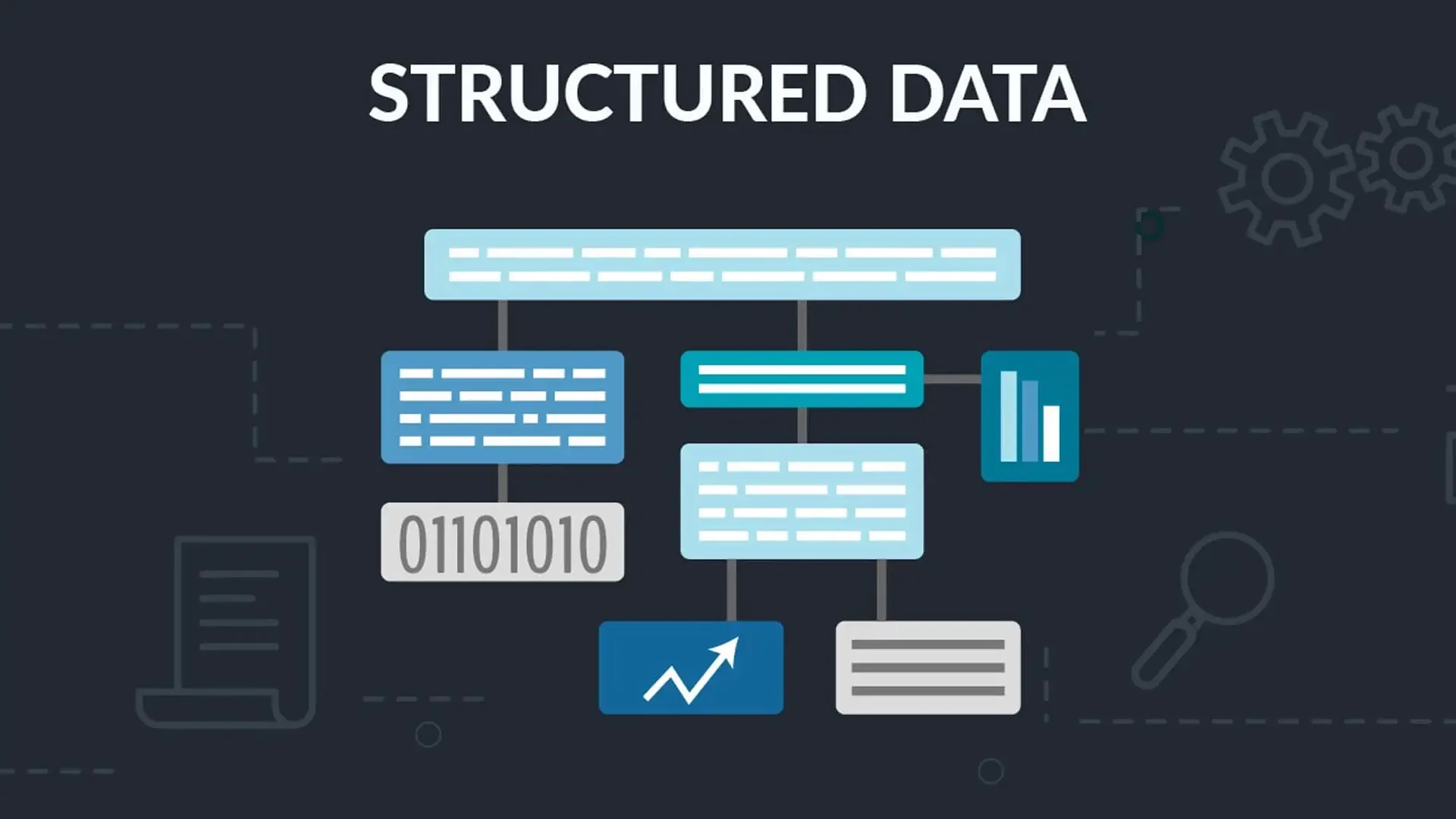How to Optimize Your Website for AI and Large Language Models

The New Era of Search: Why LLM Optimization Matters
The way people find information online is changing dramatically. While traditional search engines like Google still dominate, millions of users now turn to AI assistants like ChatGPT, Claude, Perplexity, and Gemini to answer their questions. These large language models (LLMs) don't just crawl and index websites—they synthesize information from multiple sources to provide direct answers.
For website owners, this shift represents both a challenge and an opportunity. If your content isn't optimized for LLMs, you're missing out on a growing segment of potential visitors. But if you adapt your strategy now, you can position your site as a trusted source that AI tools regularly cite and recommend.
This comprehensive guide will show you exactly how to optimize your website for AI and large language models, ensuring your content remains discoverable in this new era of search.
Understanding How LLMs Access and Use Your Content
Before diving into optimization strategies, it's important to understand how LLMs interact with websites. Unlike traditional search engines that primarily use keywords and backlinks, LLMs evaluate content based on several factors:
- Authority and trustworthiness: LLMs prioritize content from established, credible sources with strong domain authority
- Content structure and clarity: Well-organized content with clear hierarchies is easier for AI to parse and understand
- Relevance and comprehensiveness: Content that thoroughly covers topics rather than skimming the surface performs better
- Recency and accuracy: Up-to-date information with specific facts and data is more likely to be cited
- Accessibility: Content must be technically accessible to crawlers and easy to retrieve in real-time
Many LLMs are trained on vast datasets that include publicly available web content, but they also retrieve information in real-time through web searches. This means your SEO foundation still matters, but you need to layer on additional optimization strategies specific to AI.
Content Creation Strategies for LLM Optimization
Write with a Question-and-Answer Structure
LLMs excel at answering direct questions. Structure your content to match this behavior by using question-based headers followed by clear, concise answers. Instead of writing a rambling introduction, get straight to the point.
For example, if you're writing about managed web hosting, use headers like "What is Managed Web Hosting?" and "How Much Does Managed Hosting Cost?" This format makes it easy for AI to extract the exact information a user is seeking.
Adopt Natural, Conversational Language
LLMs are designed to understand and generate human-like text. Write in a conversational tone using contractions, personal pronouns, and natural sentence structures. Avoid overly technical jargon unless your audience specifically requires it.
Think about how someone would actually ask a question to an AI assistant. They might say, "How do I backup my WordPress site?" rather than searching for "WordPress backup methodology implementation." Write content that answers these natural queries.
Build Comprehensive Topical Authority
Gone are the days when you could rank well by targeting single keywords. To become a trusted source for LLMs, you need to demonstrate deep expertise across an entire topic area. This means creating clusters of related content that cover every aspect of a subject.
If you offer VPS hosting, don't just write one article about VPS benefits. Create a comprehensive content hub covering VPS setup, security, performance optimization, scaling, troubleshooting, and comparisons with other hosting types. Link these articles together to show the breadth of your expertise.
Include Specific Details and Real Data
Vague, generic content gets ignored by AI. LLMs favor specific, factual information that they can confidently cite. Instead of saying "backups are important," explain that "businesses without proper backups face an average of $5,600 per minute in downtime costs, according to Gartner research."
Include case studies, statistics, concrete examples, and detailed explanations. If you offer managed backup services, specify your retention periods, encryption standards, recovery time objectives, and specific technologies you use.
Balance Evergreen and Timely Content
Your content strategy should include both types of articles. Evergreen content establishes your foundational expertise on core topics that remain relevant over time. This might include guides on fundamental concepts like server security or database optimization.
Timely content demonstrates that you're current and actively maintaining your knowledge. Write about new technologies, recent industry changes, and emerging trends. This combination signals to LLMs that you're both knowledgeable and up-to-date.
Create Detailed FAQ Sections
FAQ sections are goldmines for LLM optimization. They directly match how users ask questions to AI assistants. Build comprehensive FAQ pages for your main service offerings and integrate FAQ sections into your longer articles.
Each FAQ should have a clear question as the header and a detailed answer that stands on its own. Don't be afraid to include dozens of questions—the more ground you cover, the more likely you are to match user queries.
Technical and Structural Optimization
Ensure Your Site is Technically Accessible
AI crawlers need to access your content just like traditional search engine bots. Make sure your site has a clean, crawlable structure with no orphaned pages. Your hosting infrastructure should reliably serve pages to crawlers without errors or timeouts.
Check your robots.txt file to ensure you're not accidentally blocking important content. Review your site's internal linking structure to help crawlers discover all your valuable pages. A well-organized sitemap also helps AI systems understand your content hierarchy.
Implement Comprehensive Structured Data
Schema markup helps LLMs understand exactly what your content represents. Implement relevant schema types from Schema.org, including Article, FAQPage, HowTo, Product, Organization, and LocalBusiness schemas where appropriate.
For a hosting company, you might mark up your service pages with Service schema, your blog posts with Article schema, and your FAQ sections with FAQPage schema. This structured data helps AI systems confidently extract and cite your information.
Optimize Page Speed and Mobile Experience
LLMs often retrieve content in real-time when answering queries. If your pages load slowly, they may be skipped in favor of faster sources. Invest in performance optimization to ensure your pages load in under two seconds.
Mobile-friendliness is equally critical. Many AI queries come from mobile devices, and LLMs favor content that renders well on smaller screens. Make sure your site is fully responsive and provides an excellent mobile experience.
Refresh and Restructure Existing Content
Don't just focus on new content. Review your existing articles and update them for LLM optimization. Add clear section headers, create summaries at the beginning of long articles, update outdated statistics, and improve internal linking.
This refresh process signals to AI systems that your content is actively maintained and current. It also gives you the opportunity to restructure information in a more question-and-answer format that LLMs prefer.
Building Authority and Trust Signals
Earn High-Quality Backlinks
LLMs, like traditional search engines, consider backlinks as votes of confidence. Focus on earning links from reputable sources in your industry. Quality matters far more than quantity—one link from a respected technology publication carries more weight than dozens of links from low-quality directories.
Create linkable assets like original research, comprehensive guides, and useful tools that other sites will naturally want to reference. If you publish unique data about hosting performance or security trends, other sites will cite you as the source.
Establish Brand Authority Through Digital PR
Getting quoted as an expert in news outlets and industry publications builds powerful trust signals. Contribute expert commentary to journalists through services like HARO (Help a Reporter Out). Write guest articles for respected industry blogs. Speak at conferences and webinars.
These activities create mentions of your brand and website across the internet, establishing you as a recognized authority. LLMs pick up on these trust signals when deciding which sources to cite.
Publish Original Research and Data
Original research is one of the most powerful ways to establish authority. Conduct surveys, analyze industry trends, compile statistics, or perform comparative studies. This unique data becomes a citable resource that other sites and AI systems will reference.
For example, if you publish an annual report on web hosting reliability trends with original data, you position yourself as a primary source that LLMs will cite when users ask about hosting statistics.
Participate in Online Communities
Active participation in forums like Reddit, Quora, Stack Overflow, and industry-specific communities helps build your presence and authority. Answer questions with detailed, non-promotional insights that genuinely help people.
LLMs are often trained on public forum data and may retrieve real-time information from these platforms. By providing valuable answers, you increase the chances that your insights and brand will be mentioned when AI tools answer related questions.
Build a Cohesive Online Presence
Maintain active, well-populated social media profiles and link to them from your website. Consider creating a YouTube channel with video content that covers similar topics to your written content. This multi-channel presence reinforces your authority and creates additional pathways for discovery.
A strong, recognizable online presence across multiple platforms signals to LLMs that you're an established, legitimate authority in your field rather than a one-off website.
Monitoring and Measuring LLM Performance
Unlike traditional SEO where you can track rankings and click-through rates, measuring LLM optimization success requires different approaches:
- Monitor referral traffic: Look for increases in direct and referral traffic that might indicate AI-driven discovery
- Track brand mentions: Use tools to monitor when your brand or content is cited across the web and in forums
- Test AI responses: Regularly query popular AI tools with questions related to your expertise and see if your content appears in responses
- Measure engagement: Users coming from AI recommendations may behave differently—track bounce rates, time on site, and conversion rates
- Follow citation patterns: If you publish unique data, track how often other sites cite and link to your research
The Future of LLM Optimization
LLM optimization is still evolving, but several trends are becoming clear. AI systems are increasingly favoring content that demonstrates real expertise through specific examples and data. They're getting better at detecting thin, AI-generated content and prioritizing human-created insights.
The websites that will succeed in this new landscape are those that focus on creating genuinely valuable, authoritative content rather than trying to game algorithms. If your goal is to truly help your audience with comprehensive, accurate information, you're already on the right path.
As you implement these strategies, remember that LLM optimization isn't separate from traditional SEO—it's an evolution. The fundamentals of good web development, fast hosting, proper site structure, and valuable content still matter. If you need help ensuring your hosting infrastructure is optimized for both traditional search and AI discovery, contact us to discuss how our managed services can support your goals.
Take Action Today
Start optimizing your website for LLMs by taking these immediate steps:
- Audit your existing content and identify opportunities to add question-based headers and clearer structure
- Implement schema markup on your most important pages
- Create or expand FAQ sections for your main service offerings
- Ensure your site is fast, mobile-friendly, and accessible to crawlers
- Begin developing original content with specific data and examples
- Build relationships with industry publications for guest posting and expert quotes
The shift toward AI-driven search is already happening. By optimizing your website for LLMs now, you'll establish your presence as a trusted source before the market becomes saturated. The websites that adapt early will have a significant advantage as more users turn to AI assistants for information and recommendations.
Remember: the goal isn't to trick AI systems into citing your content. It's to genuinely become the best, most authoritative source of information in your niche. Focus on quality, accuracy, and comprehensiveness, and both AI tools and human visitors will reward you with their trust and traffic.
Related Articles


Using Claude Code as your SEO Expert
October 31, 2025